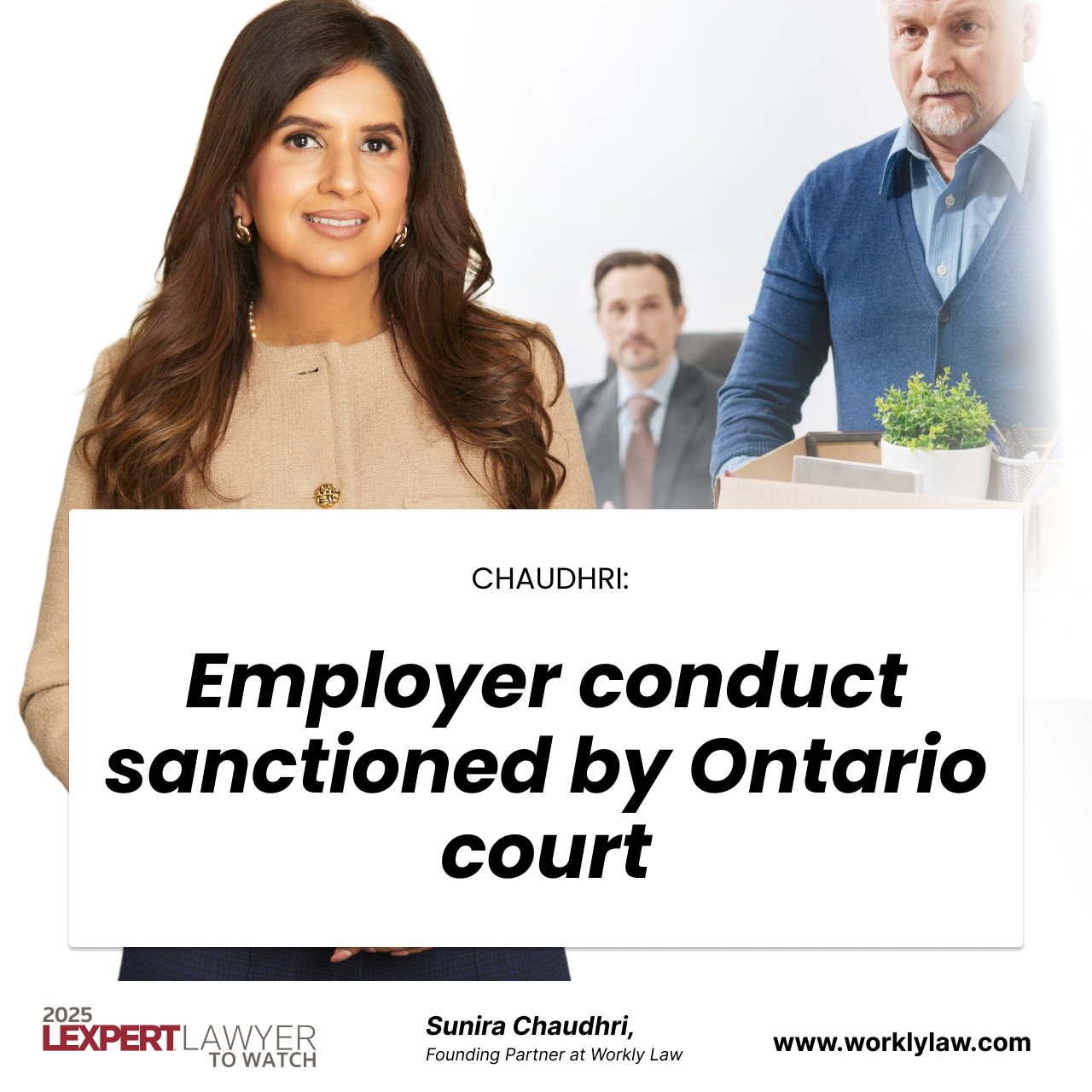Sunira Chaudhri
CHAUDHRI: Terminations can be hard to fight – even for the powerful

I usually like to tie my columns to court cases or news events but today I will share a fictional story with raw employment undertones.
In the new television show Your Friends and Neighbors, John Hamm plays a fictional character Andrew Cooper, a brilliant hedge fund manager with a Princeton pedigree. Despite his status and strong track record, he is terminated after an indiscretion with a subordinate employee.
Coop, as he is called, is hamstrung by a two-year, non-solicitation clause in his employment agreement. He is shunned by colleagues and locked out of his capital account. Coop takes interviews at other financial shops but is summarily dismissed at each meeting; the shadow of his non solicit, predetermining the outcome.
While most of this fictional story isn’t relatable to the average employee, one element is: Coop is entirely reluctant to sue his employer. Desperate to maintain his lifestyle, he laments to a friend about his plight, certain his employer will never negotiate.
The sepulchral tones of this plot line aren’t limited to the world of fiction.
I think back to the story of the founder of JetBlue Airways David Neeleman I shared with you years ago.
Neeleman launched the successful airline after waiting out a five-year, non-competition clause flowing from his termination at Southwest Airlines.
Neeleman recounted the exchange he had with the CEO of Southwest, Herb Kelleher, after he was let go on a podcast.
About one-and-a-half years into the non-competition period, he called Southwest’s CEO and said, “Hey Herb, you know, I’ve consulted legal counsel … this thing isn’t really enforceable.”
Kelleher responded, “David, you’re the last person I want to see in the airline business. So, I will fight you tooth and nail. I do not want to see you in the airline business.”
Neeleman was quite a powerful figure, but he too recounted the emotional hurdles in taking on his former employer.
What may be shocking to some is that employers also fear the unpredictable, mercurial nature of litigation. The fear is never one-sided despite the illusion.
If we all played nicely in the sandbox, litigation wouldn’t exist. It’s here to balance the scales, to allow parties to seize upon leverage, and to force fair outcomes when none are on the table.
While never a life goal, taking on a former employer may crystallize your retirement plan or hold you over until your next opportunity. On occasion, it unlocks new wealth.
Terminations can be hard to fight, even for the powerful, well-heeled executive. But it can also be the best business decision one makes during one’s career.
Have a workplace question? Maybe I can help! Email me at sunira@worklylaw.com and your question may be featured in a future column.
The content of this article is general information only and is not legal advice.
Related articles
POWER: Ontario Minimum Wage Increase Effective October 1, 2025
Effective October 1, 2025, Ontario’s general minimum wage will increase to $17.60 per hour (up from $17.20). This annual adjustment is tied to the Consumer Price Index and affects nearly all employees covered by the Employment Standards Act, 2000 (ESA). For employers, this increase is a timely reminder to review pay practices, budgets, and compliance processes before the fall.
CHAUDHRI: Employer conduct sanctioned by Ontario court
Courts do not want employees to be 'starved' by employers in an effort to have them accept lower packages on termination


